- Home
- Nathaniel Hawthorne
The Marble Faun; Or, The Romance of Monte Beni - Volume 1 Page 2
The Marble Faun; Or, The Romance of Monte Beni - Volume 1 Read online
Page 2
CHAPTER II
THE FAUN
"Donatello," playfully cried Miriam, "do not leave us in this perplexity!Shake aside those brown curls, my friend, and let us see whether thismarvellous resemblance extends to the very tips of the ears. If so, weshall like you all the better!"
"No, no, dearest signorina," answered Donatello, laughing, but witha certain earnestness. "I entreat you to take the tips of my ears forgranted." As he spoke, the young Italian made a skip and jump, lightenough for a veritable faun; so as to place himself quite beyond thereach of the fair hand that was outstretched, as if to settle the matterby actual examination. "I shall be like a wolf of the Apennines," hecontinued, taking his stand on the other side of the Dying Gladiator,"if you touch my ears ever so softly. None of my race could endure it.It has always been a tender point with my forefathers and me."
He spoke in Italian, with the Tuscan rusticity of accent, and anunshaped sort of utterance, betokening that he must heretofore have beenchiefly conversant with rural people.
"Well, well," said Miriam, "your tender point--your two tender points,if you have them--shall be safe, so far as I am concerned. But howstrange this likeness is, after all! and how delightful, if it reallyincludes the pointed ears! O, it is impossible, of course," shecontinued, in English, "with a real and commonplace young man likeDonatello; but you see how this peculiarity defines the position ofthe Faun; and, while putting him where he cannot exactly assert hisbrotherhood, still disposes us kindly towards the kindred creature. Heis not supernatural, but just on the verge of nature, and yet withinit. What is the nameless charm of this idea, Hilda? You can feel it moredelicately than I."
"It perplexes me," said Hilda thoughtfully, and shrinking a little;"neither do I quite like to think about it."
"But, surely," said Kenyon, "you agree with Miriam and me that there issomething very touching and impressive in this statue of the Faun. Insome long-past age, he must really have existed. Nature needed, andstill needs, this beautiful creature; standing betwixt man and animal,sympathizing with each, comprehending the speech of either race, andinterpreting the whole existence of one to the other. What a pity thathe has forever vanished from the hard and dusty paths of life,--unless,"added the sculptor, in a sportive whisper, "Donatello be actually he!"
"You cannot conceive how this fantasy takes hold of me," respondedMiriam, between jest and earnest. "Imagine, now, a real being, similarto this mythic Faun; how happy, how genial, how satisfactory would behis life, enjoying the warm, sensuous, earthy side of nature; revellingin the merriment of woods and streams; living as our four-footed kindreddo,--as mankind did in its innocent childhood; before sin, sorrow ormorality itself had ever been thought of! Ah! Kenyon, if Hilda and youand I--if I, at least--had pointed ears! For I suppose the Faun hadno conscience, no remorse, no burden on the heart, no troublesomerecollections of any sort; no dark future either."
"What a tragic tone was that last, Miriam!" said the sculptor;and, looking into her face, he was startled to behold it pale andtear-stained. "How suddenly this mood has come over you!"
"Let it go as it came," said Miriam, "like a thunder-shower in thisRoman sky. All is sunshine again, you see!"
Donatello's refractoriness as regarded his ears had evidently cost himsomething, and he now came close to Miriam's side, gazing at her with anappealing air, as if to solicit forgiveness. His mute, helpless gestureof entreaty had something pathetic in it, and yet might well enoughexcite a laugh, so like it was to what you may see in the aspect of ahound when he thinks himself in fault or disgrace. It was difficult tomake out the character of this young man. So full of animal life ashe was, so joyous in his deportment, so handsome, so physicallywell-developed, he made no impression of incompleteness, of maimed orstinted nature. And yet, in social intercourse, these familiar friendsof his habitually and instinctively allowed for him, as for a child orsome other lawless thing, exacting no strict obedience to conventionalrules, and hardly noticing his eccentricities enough to pardon them.There was an indefinable characteristic about Donatello that set himoutside of rules.
He caught Miriam's hand, kissed it, and gazed into her eyes withoutsaying a word. She smiled, and bestowed on him a little careless caress,singularly like what one would give to a pet dog when he puts himself inthe way to receive it. Not that it was so decided a caress either, butonly the merest touch, somewhere between a pat and a tap of the finger;it might be a mark of fondness, or perhaps a playful pretence ofpunishment. At all events, it appeared to afford Donatello exquisitepleasure; insomuch that he danced quite round the wooden railing thatfences in the Dying Gladiator.
"It is the very step of the Dancing Faun," said Miriam, apart, to Hilda."What a child, or what a simpleton, he is! I continually find myselftreating Donatello as if he were the merest unfledged chicken; and yethe can claim no such privileges in the right of his tender age, for heis at least--how old should you think him, Hilda?"
"Twenty years, perhaps," replied Hilda, glancing at Donatello; "but,indeed, I cannot tell; hardly so old, on second thoughts, or possiblyolder. He has nothing to do with time, but has a look of eternal youthin his face."
"All underwitted people have that look," said Miriam scornfully.
"Donatello has certainly the gift of eternal youth, as Hilda suggests,"observed Kenyon, laughing; "for, judging by the date of this statue,which, I am more and more convinced, Praxiteles carved on purpose forhim, he must be at least twenty-five centuries old, and he still looksas young as ever."
"What age have you, Donatello?" asked Miriam.
"Signorina, I do not know," he answered; "no great age, however; for Ihave only lived since I met you."
"Now, what old man of society could have turned a silly compliment moresmartly than that!" exclaimed Miriam. "Nature and art are just at onesometimes. But what a happy ignorance is this of our friend Donatello!Not to know his own age! It is equivalent to being immortal on earth. IfI could only forget mine!"
"It is too soon to wish that," observed the sculptor; "you are scarcelyolder than Donatello looks."
"I shall be content, then," rejoined Miriam, "if I could only forgetone day of all my life." Then she seemed to repent of this allusion, andhastily added, "A woman's days are so tedious that it is a boon to leaveeven one of them out of the account."
The foregoing conversation had been carried on in a mood in which allimaginative people, whether artists or poets, love to indulge. In thisframe of mind, they sometimes find their profoundest truths side by sidewith the idlest jest, and utter one or the other, apparently withoutdistinguishing which is the most valuable, or assigning any considerablevalue to either. The resemblance between the marble Faun and theirliving companion had made a deep, half-serious, half-mirthful impressionon these three friends, and had taken them into a certain airy region,lifting up, as it is so pleasant to feel them lifted, their heavyearthly feet from the actual soil of life. The world had been setafloat, as it were, for a moment, and relieved them, for just so long,of all customary responsibility for what they thought and said.
It might be under this influence--or, perhaps, because sculptors alwaysabuse one another's works--that Kenyon threw in a criticism upon theDying Gladiator.
"I used to admire this statue exceedingly," he remarked, "but, latterly,I find myself getting weary and annoyed that the man should be such alength of time leaning on his arm in the very act of death. If he is soterribly hurt, why does he not sink down and die without further ado?Flitting moments, imminent emergencies, imperceptible intervals betweentwo breaths, ought not to be incrusted with the eternal repose ofmarble; in any sculptural subject, there should be a moral standstill,since there must of necessity be a physical one. Otherwise, it islike flinging a block of marble up into the air, and, by some trick ofenchantment, causing it to stick there. You feel that it ought to comedown, and are dissatisfied that it does not obey the natural law."
"I see," said Miriam mischievously, "you think that sculpture shouldbe a sort of fossilizing
process. But, in truth, your frozen art hasnothing like the scope and freedom of Hilda's and mine. In paintingthere is no similar objection to the representation of brief snatchesof time,--perhaps because a story can be so much more fully told inpicture, and buttressed about with circumstances that give it an epoch.For instance, a painter never would have sent down yonder Faun out ofhis far antiquity, lonely and desolate, with no companion to keep hissimple heart warm."
"Ah, the Faun!" cried Hilda, with a little gesture of impatience; "Ihave been looking at him too long; and now, instead of a beautifulstatue, immortally young, I see only a corroded and discolored stone.This change is very apt to occur in statues."
"And a similar one in pictures, surely," retorted the sculptor. "It isthe spectator's mood that transfigures the Transfiguration itself.I defy any painter to move and elevate me without my own consent andassistance."
"Then you are deficient of a sense," said Miriam.
The party now strayed onward from hall to hall of that rich gallery,pausing here and there, to look at the multitude of noble and lovelyshapes, which have been dug up out of the deep grave in which old Romelies buried. And still, the realization of the antique Faun, in theperson of Donatello, gave a more vivid character to all these marbleghosts. Why should not each statue grow warm with life! Antinous mightlift his brow, and tell us why he is forever sad. The Lycian Apollomight strike his lyre; and, at the first vibration, that other Faun inred marble, who keeps up a motionless dance, should frisk gayly forth,leading yonder Satyrs, with shaggy goat-shanks, to clatter their littlehoofs upon the floor, and all join hands with Donatello! Bacchus, too,a rosy flush diffusing itself over his time-stained surface, couldcome down from his pedestal, and offer a cluster of purple grapes toDonatello's lips; because the god recognizes him as the woodland elfwho so often shared his revels. And here, in this sarcophagus, theexquisitely carved figures might assume life, and chase one anotherround its verge with that wild merriment which is so strangelyrepresented on those old burial coffers: though still with some subtileallusion to death, carefully veiled, but forever peeping forth amidemblems of mirth and riot.
As the four friends descended the stairs, however, their play of fancysubsided into a much more sombre mood; a result apt to follow upon suchexhilaration as that which had so recently taken possession of them.
"Do you know," said Miriam confidentially to Hilda, "I doubt the realityof this likeness of Donatello to the Faun, which we have been talking somuch about? To say the truth, it never struck me so forcibly as it didKenyon and yourself, though I gave in to whatever you were pleased tofancy, for the sake of a moment's mirth and wonder." "I was certainlyin earnest, and you seemed equally so," replied Hilda, glancing backat Donatello, as if to reassure herself of the resemblance. "But faceschange so much, from hour to hour, that the same set of features hasoften no keeping with itself; to an eye, at least, which looks atexpression more than outline. How sad and sombre he has grown all of asudden!" "Angry too, methinks! nay, it is anger much more than sadness,"said Miriam. "I have seen Donatello in this mood once or twice before.If you consider him well, you will observe an odd mixture ofthe bulldog, or some other equally fierce brute, in our friend'scomposition a trait of savageness hardly to be expected in such agentle creature as he usually is. Donatello is a very strange young man.I wish he would not haunt my footsteps so continually."
"You have bewitched the poor lad," said the sculptor, laughing. "Youhave a faculty of bewitching people, and it is providing you with asingular train of followers. I see another of them behind yonder pillar;and it is his presence that has aroused Donatello's wrath."
They had now emerged from the gateway of the palace; and partlyconcealed by one of the pillars of the portico stood a figure such asmay often be encountered in the streets and piazzas of Rome, and nowhereelse. He looked as if he might just have stepped out of a picture, and,in truth, was likely enough to find his way into a dozen pictures; beingno other than one of those living models, dark, bushy bearded, wildof aspect and attire, whom artists convert into saints or assassins,according as their pictorial purposes demand.
"Miriam," whispered Hilda, a little startled, "it is your model!"

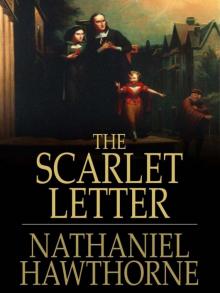 The Scarlet Letter
The Scarlet Letter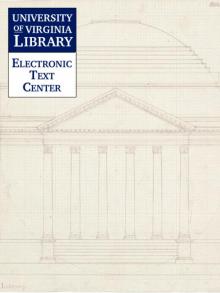 Young Goodman Brown : By Nathaniel Hawthorne - Illustrated
Young Goodman Brown : By Nathaniel Hawthorne - Illustrated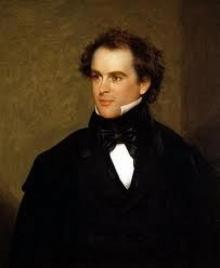 The Birthmark
The Birthmark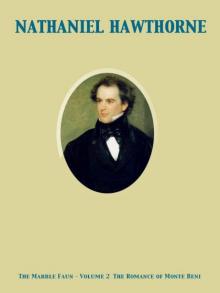 The Marble Faun; Or, The Romance of Monte Beni - Volume 1
The Marble Faun; Or, The Romance of Monte Beni - Volume 1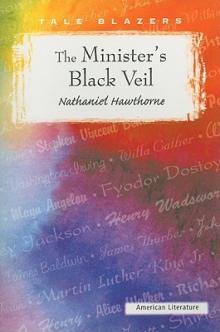 The Minister's Black Veil
The Minister's Black Veil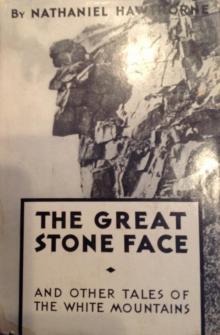 The Great Stone Face, and Other Tales of the White Mountains
The Great Stone Face, and Other Tales of the White Mountains The House of the Seven Gables
The House of the Seven Gables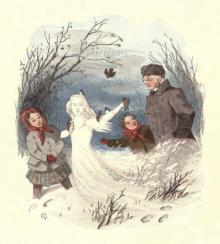 The Snow Image
The Snow Image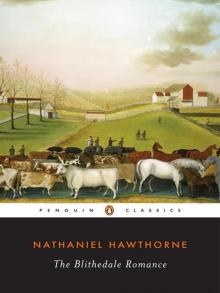 The Blithedale Romance
The Blithedale Romance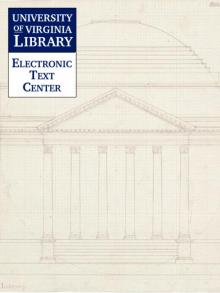 Rappaccini's Daughter: By Nathaniel Hawthorne - Illustrated
Rappaccini's Daughter: By Nathaniel Hawthorne - Illustrated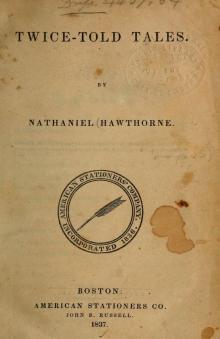 Twice-Told Tales
Twice-Told Tales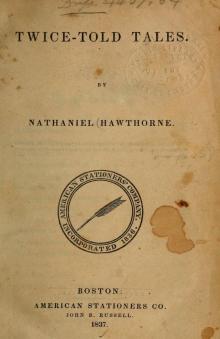 Twice Told Tales
Twice Told Tales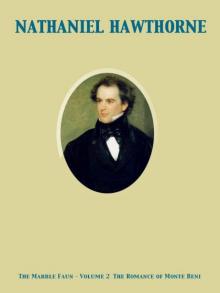 The Marble Faun; Or, The Romance of Monte Beni - Volume 2
The Marble Faun; Or, The Romance of Monte Beni - Volume 2_preview.jpg) Footprints on the Sea-Shore (From Twice Told Tales)
Footprints on the Sea-Shore (From Twice Told Tales)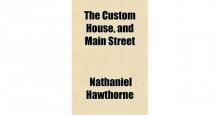 Main Street
Main Street_preview.jpg) The Seven Vagabonds (From Twice Told Tales)
The Seven Vagabonds (From Twice Told Tales) Fanshawe
Fanshawe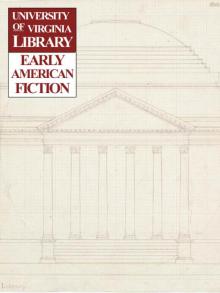 Chippings with a Chisel
Chippings with a Chisel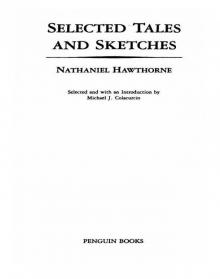 Selected Tales and Sketches
Selected Tales and Sketches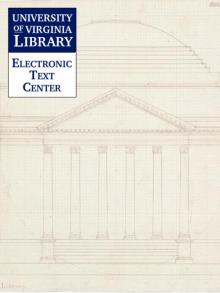 Young Goodman Brown
Young Goodman Brown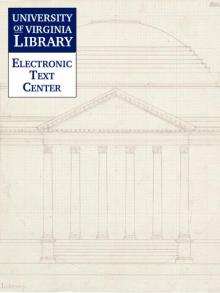 Roger Malvin's Burial
Roger Malvin's Burial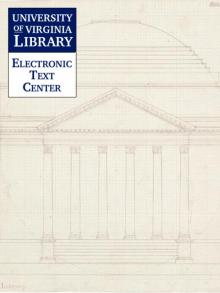 The Prophetic Pictures
The Prophetic Pictures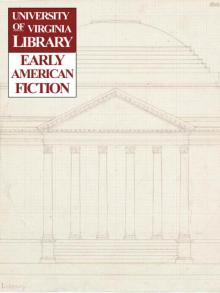 The Village Uncle
The Village Uncle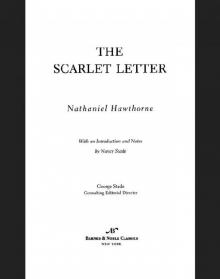 Scarlet Letter (Barnes & Noble Classics Series)
Scarlet Letter (Barnes & Noble Classics Series)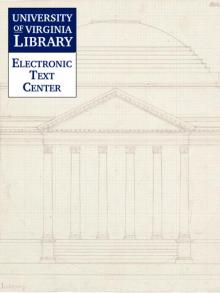 The Procession of Life
The Procession of Life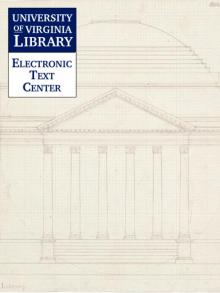 Drowne's Wooden Image
Drowne's Wooden Image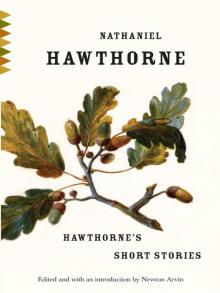 Hawthorne's Short Stories
Hawthorne's Short Stories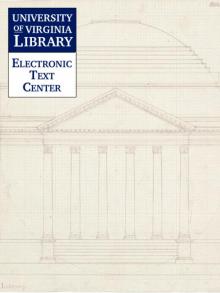 My Kinsman, Major Molineux
My Kinsman, Major Molineux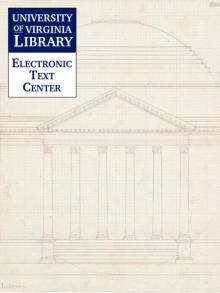 Legends of the Province House
Legends of the Province House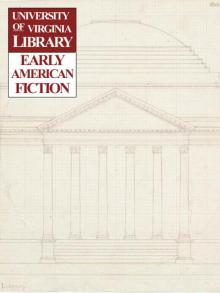 Foot-Prints on the Sea-Shore
Foot-Prints on the Sea-Shore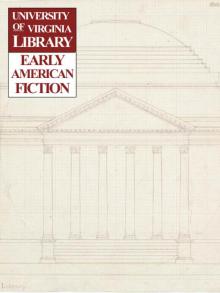 The Haunted Quack
The Haunted Quack Tanglewood Tales
Tanglewood Tales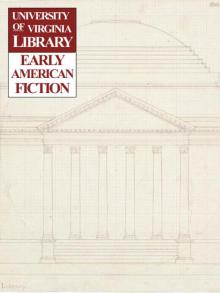 The Seven Vagabonds
The Seven Vagabonds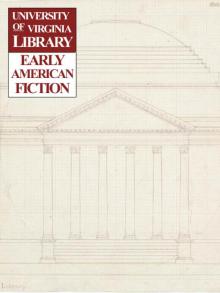 Mosses from an Old Manse, Volume 2
Mosses from an Old Manse, Volume 2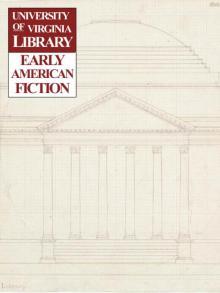 The Canterbury Pilgrims
The Canterbury Pilgrims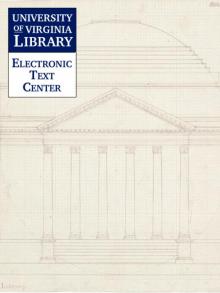 Wakefield
Wakefield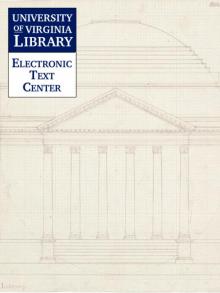 The Gray Champion
The Gray Champion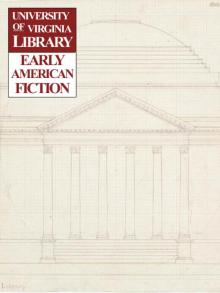 The White Old Maid
The White Old Maid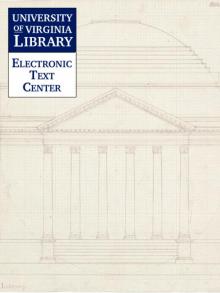 The Snow-Image: A Childish Miracle
The Snow-Image: A Childish Miracle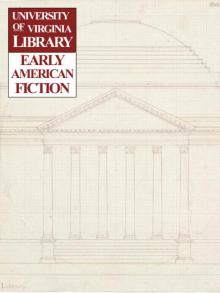 The Gentle Boy
The Gentle Boy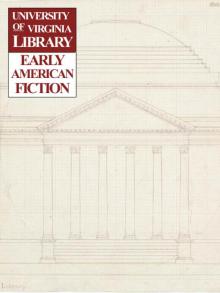 Mr. Higginbotham's Catastrophe
Mr. Higginbotham's Catastrophe![The Threefold Destiny: A Fairy Legend, by Ashley Allen Royce [pseud.] Read online](http://i1.bookreadfree.com/i2/04/10/the_threefold_destiny_a_fairy_legend_by_ashley_allen_royce_pseud__preview.jpg) The Threefold Destiny: A Fairy Legend, by Ashley Allen Royce [pseud.]
The Threefold Destiny: A Fairy Legend, by Ashley Allen Royce [pseud.]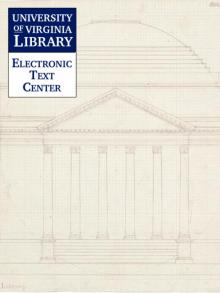 Lady Eleanore`s Mantle
Lady Eleanore`s Mantle The Great Carbuncle
The Great Carbuncle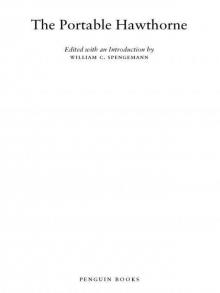 The Portable Hawthorne (Penguin Classics)
The Portable Hawthorne (Penguin Classics)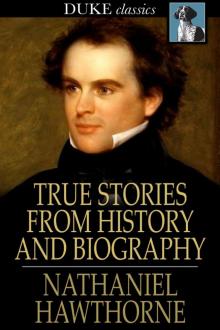 True Stories from History and Biography
True Stories from History and Biography